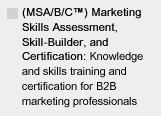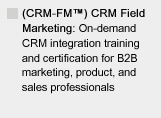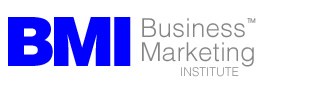MAKE SURE YOU CONTINUE TO RECEIVE EACH ISSUE OF TUESDAY MARKETING NOTES—CLICK HERE TO RENEW YOUR FREE SUBSCRIPTION (IF YOU'VE ALREADY SUBSCRIBED, NO NEED TO RE-SUBSCRIBE)

5 Reasons to Include FAQs in Your Content Marketing Strategy
by Michele Linn, Linn Communications
Lately, I've become a big fan of FAQ pages on Web sites. I never thought that I would be recommending this type of "Old School" content to so many of my clients, but I find myself doing so all the time.
Why? Here are several reasons . . .
FAQs are fantastic for Search Engine Optimization (SEO): If done well, FAQ pages answer the questions your audience has in the language they use (which means using words they are searching with). These pages are content-rich gems that help drive organic traffic (the best kind of traffic) to your Web site.
FAQs help you think through all of the questions your readers have: Invariably, as I develop questions and answers for the FAQ page, I find myself refining my thoughts on positioning and content on other portions of a Web site: "Oh yeah, a reader may be thinking about this. I think we should address this in greater detail, or maybe we should develop some content specific to this." Go through this exercise even if you aren't going to post the FAQs: you're bound to find some holes—and opportunities—in your content marketing strategy.
FAQs can be used as a next step: Every marketing piece needs a call-to-action, and an FAQ page is the perfect thing. Once I was working on a white paper for a client, and we were talking about the next step we want the reader to take. There wasn't anything obvious, so one of my suggestions was to think of all of the questions that the reader would have as a result of reading the white paper and create an FAQ page specifically for this stage of the prospect's product research process.
FAQs are fast to put together and easy to update: The FAQ page is very easy content to put together, and you can make updates often. Who doesn't like that?
Readers turn to FAQs to find information: From a reader's perspective, FAQ pages are comforting: they know what to expect and they are easy to skim.
However, not all FAQ pages are created equal. As an example, take this question I came across recently a banking Web site:
What features do you offer the small business owner? [Bank X] is committed to small business. We offer a variety of deposit accounts, loans, and leases to service our small business customers. We take pride in building relationships and providing you with the service you'll need to succeed. Because small business is big business to us.
Geesh! What a non-answer layered with marketing fluff! If you don't have an answer you can post, don't ask the question. Or, if the answer isn't straightforward, direct the reader how to get more information.
The best FAQs are educational and helpful. My philosophy is to make the FAQ section robust; it's fine to include questions that are addressed on other portions of the Web site. You never know how readers look for information and, if they are having trouble finding something, they will likely refer to your FAQs.
To brainstorm questions, put on your prospect/customer hat and start really thinking through what they may want to know:
• If they are new to the concept of what you are selling, what type of general information would they want to know that is not specific to your product/service?
• Do they have questions about how your product/service works?
• What do they want to know about working with you?
•I also recommend including questions about things you want your reader to know but they may not think to ask. For instance, is there something that makes your product or service stand out? If so, pose a question a question that will let the reader know this. Another common question I use is "How are you different?"
Don't forget to check with sales and other customer-facing groups to see what type of questions they receive from prospects, as FAQs should obviously answer those common questions. And, once complete, make sure that all of these groups know about the FAQs as well as it will make their jobs easier.
If you think through questions your reader has, using the words your reader would use, FAQ pages can be content—and SEO—goldmines for your company or client.
Michele Linn (http://www.linncommunications.com/) is a freelance marketing writer specializing in white papers, research reports, feature articles, case studies, and other B2B communications. Her business is devoted to making the job of B2B marketers easier by producing buyer-focused content and providing insights on how they can market it. She is also a founding member and frequent contributor to the Savvy B2B Marketing blog (http://savvyb2bmarketing.com/blog). Send her an email (michele@linncommunications.com) or follow her on Twitter (http://twitter.com/michelelinn)








